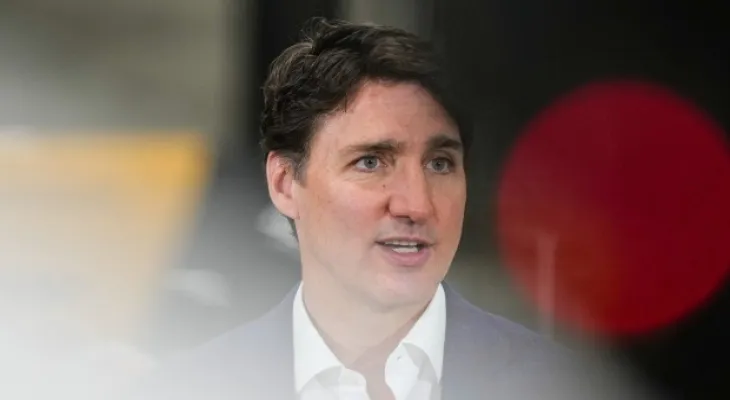Search here
Newspaper
Search here

Arab Canada News
News

Published: July 8, 2024
Prime Minister Justin Trudeau drew international attention in 2021 when he called for early elections during the COVID-19 pandemic.
It was an attempt to secure a liberal majority, a gamble at a time when much uncertainty seemed to prevail, and although the gamble failed, Canadians gave Trudeau a second, slightly stronger minority mandate.
Speculation about whether he would return voters to the polls ahead of the scheduled elections in October 2025 has been rampant for over a year.
But with international examples of early elections leading to the ousting of incumbents, and the federal Conservatives maintaining a good lead in national opinion polls, alongside speculation about whether Trudeau should resign, it seems unlikely that the liberals would want to roll the dice again.
Just last week, anti-incumbent sentiments led to the downfall of two G7 governments.
On Sunday, French President Emmanuel Macron gambled his centrist coalition on early elections and lost, although the risky maneuver appears to have thwarted the rise of a far-right party in that country.
In the United Kingdom, the Conservative Party led by Rishi Sunak suffered a crushing defeat in the by-elections held last week in July. The party that had led Britain for 14 years was reduced to official opposition, as the Labour Party led by Keir Starmer won 412 out of 650 seats in Parliament.
Jerry White, an English professor at the University of Saskatchewan and former head of Research Canada in European Studies, said neither country provides an ideal comparison for Canada, although they may offer some insights.
He added, "Macron has been in trouble for a while."
He dissolved the French National Assembly last month after his centrist party faced a crushing defeat at the hands of the far-right in the European parliamentary elections.
Initial forecasts after the polls closed in France on Sunday show that a coalition of left-wing parties won a majority, ousting Macron's centrist party and leaving the populist National Rally party trailing significantly.
Macron's personal popularity has declined in France, and although he will remain president until 2027, he may have to share power with a prime minister who opposes most of his domestic policies.
White said that polarization in France is partly due to frustrations with Macron's leadership and the lack of a viable alternative, stating that the core of traditional centrist French politics has collapsed.
He added, "There is leftist radicalism and very far-right populism that people are drawn to."
This offers a potential lesson for Trudeau's liberals, who he said, "have a tendency to present themselves as separate from all this dirty political business."
White said Macron made a mistake by presenting himself as above the political fray.
He added, "Partisanship is the game they are in, and there is nothing to be ashamed of."
In the United Kingdom, White said there is "impatience with the current government" after 14 years.
Sunak had until the end of the year to call for elections, but he dissolved Parliament in late May.
By June, Labour was leading by 20 points in the polls, prompting many to question why the Conservatives were putting themselves on a path to defeat.
Polls suggest that Trudeau's liberals may face the same obstacle after nine years in power. Few Canadian governments have remained in power longer.
Trudeau is expected to meet with French President Macron and British Prime Minister Starmer this week as he attends a NATO leaders' summit in Washington, D.C.
These discussions are likely to be hindered by the shifting tide in the United States, where coalition leaders are contending with the prospect of President Joe Biden's defeat in the elections and the return of a Trump administration.
Trudeau and his ministers have been asked questions about their political future since the liberals suffered an unexpected loss in a byelection that the party had been contesting for more than 30 years.
Conservative leader Pierre Poilievre has called on Trudeau to call for early elections after his party's victory in the Toronto-area elections.
Trudeau reflected on the challenge he and his fellow democratic leaders face last week as people around the world seek change when he received questions from journalists for the first time since the byelection setback.
But rather than relying on the uncertain hand of sending Canadians to the polls early, Trudeau seems to be placing his confidence in his government's ability to raise the stakes ahead of the next scheduled elections in 2025.
"Whether we look at what is happening in France, or at the elections in the United States, or at any democracy around the world where we are witnessing increasing challenges to people's welfare, heightened anxieties, and the erosion of democratic principles and rights, this is a really important time for governments to ramp up their efforts and deliver tangible services to citizens."
Comments